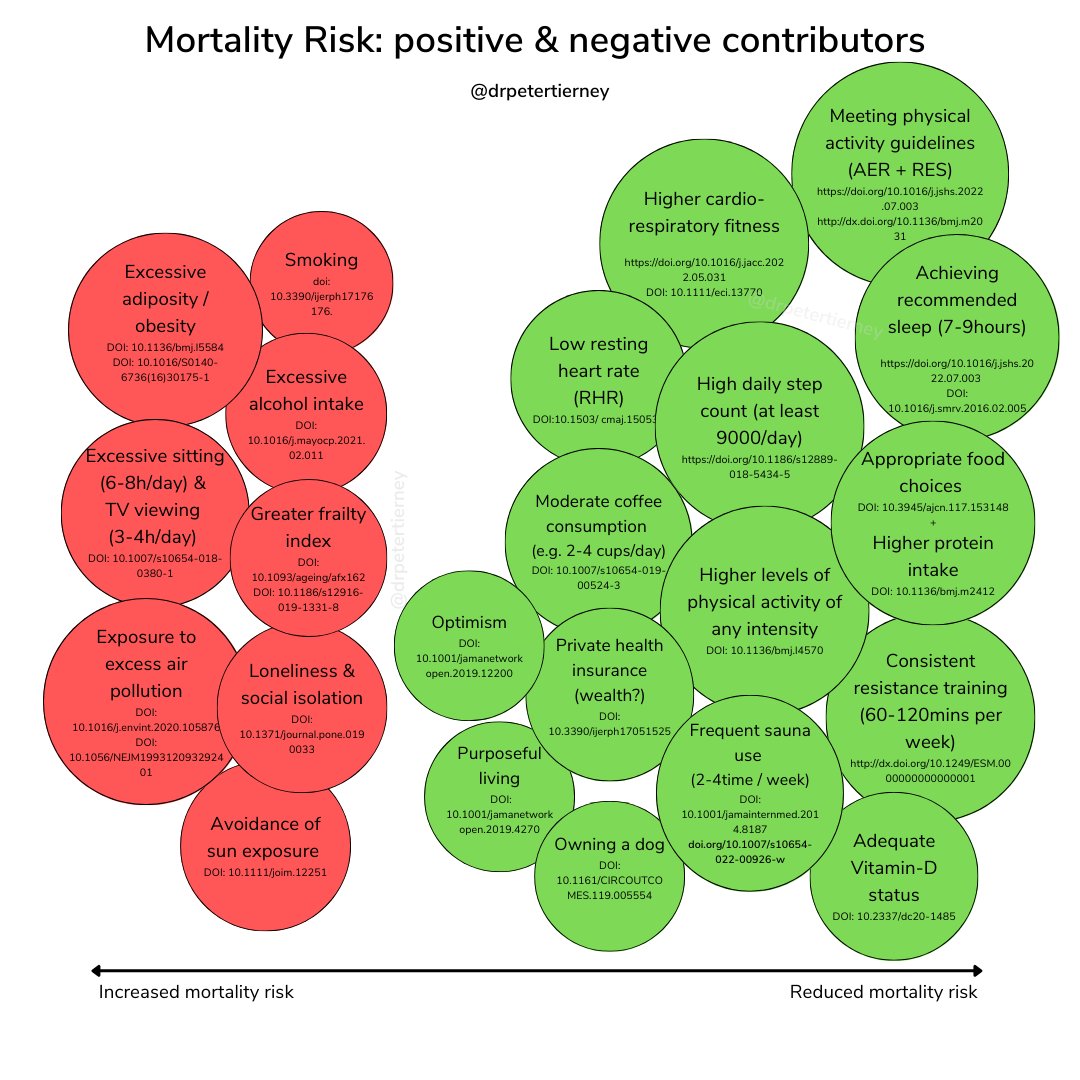Avoidance of sun exposure is a negative? Why? Is it the vitamin D deficiency? If so then it is double counted…
Sun exposure makes me feel nauseous and I burn easily, so I tend to avoid it when I can.
And no, I don’t drink blood… ![]()
Seems that it is vitamin D, but points out since it is Swedish study that same restrictive sun exposure guidelines that are appropriate for e.g. Australia don’t make sense in other countries with low UV index.
My interview with Prof Pru Hart covered the UV topic. She said some UV was important for health. Too much has obvious drawbacks but “studies show” too little UV causes immune function issues.
Maybe because of lack of vitamin D?
Prof Hart said UV has many effects on our bodies… more than just Vit D
Can you elaborate on what effects it has in our bodies?
I wouldn’t know for UV but sunlight has many effects beyond vitamin D. From top of my head i can say it improves mood, is natural antidepressant, triggers serotonin production, it has a role in nitric oxide production…
Here is the podcast:
I don’t recall details. She spoke at length about immune system dysfunction related to low UV (autoimmune in particular). She recommends regular brief exposure to sunlight with hats and sunscreen otherwise. She also says to visit the dermatologist regularly to pickoff the bad bits early.
Just to be clear. And supplementation with vitamin D is not sufficient? Did the study track the vitamin supplementation as well or just sun exposure?
From podcast show notes. Professor Prue Hart is a photoimmunologist and researcher investigating the beneficial effects of ultraviolet (UV) light on health and disease…despite the fear mongering about skin cancer and skin aging, the research has shown that TOO LITTLE sun exposure is linked to increased mortality and multiple chronic diseases, including autoimmune and cardiovascular diseases… Vitamin D is only one of many molecules made by our bodies in response to UV light (others include nitric oxide and urocanic acid).
…https://onlinelibrary.wiley.com/doi/10.1111/joim.12496 (copy and paste to view)
Is this based on association studies where people who don’t see sunlight too often (nursuring home inhabitants, prisoners, old people in general) tend to die earlier?
Edit: while reading through the studies, Mendellian randomization only shows the importance of vitamin D serum levels. For other factors there’s nothing more than mechanistic speculation and weak associations from observational studies.
But per Professor Prue Hart (from the podcast @Joseph_Lavelle shared) the supplementation of vitamin D doesn’t show same benefits as sun exposure. I haven’t checked any studies yet, but I think it is worth discussing it.
Professor Prue Hart may be talking about the observational trials here which did show that people who get more sunlight have lower rates of cardiovascular disease etc. but none of those associations have been proven causal by Mendellian randomization yet. Reverse causality is much more likely to explain those results (people who often go outside are more physically active and social than those who don’t).
The old joke from the Finance world about perfectly efficient markets goes something like this:
The finance professor and his student are walking across campus together when the student stops and says, “look, a $20 bill”…the professor doesn’t stop or look, but says, “that’s impossible; someone would have picked it up already.” The student picks up the $20 bill.
If sunlight exposure independently from vitamin D levels was such an important aspect of longevity, Mendellian randomization would’ve proven a causal link a long time ago. But as of now no such causal link has been proven yet we do know that exposure to UV ages our skin and increases our risk of getting skin cancer.
Well she talks about other roles UV expoure migh provide. There are several different skin receptors for UV light except vitamin D synthesis (I belevie she mentioned 7 that are identified). One very important is UCA photoreceptor. Just a quick search:
Trans -urocanic acid (trans- UCA) is synthesized in the skin, liver, and brain. It is a major natural moisturizing factor in skin and maintains its acid pH. In skin, it isomerizes to cis -UCA following exposure to UVR. Both isomers fulfill multiple roles in health and disease. Cis -UCA has immunomodulatory properties linked with several cutaneous diseases such as skin cancer, atopic dermatitis, and urticaria and associates with systemic diseasesincluding [multiple sclerosis]
(https://www.sciencedirect.com/topics/medicine-and-dentistry/multiple-sclerosis).
She also talks about sun exposure transforming immune response (reduced autoimmunity etc.) but supplementation does not provide the same results. But anyway…
That’s mostly mechanistic speculation. What we lack are intervention studies in humans or at least in mice.
Thanks. It looks like at least Melatonin and vitamin d is needed and potentially more if you stay way from the sun. At least exercise. Also it looks like the skin cancer risk increases with more sun exposure but is offset by decreased risk of the CVD. One thing to keep in mind that we are talking here about Sweden where uv index is 7 a couple of weeks in the summer. Such trade offs may be different for a fair skinned Swedish person permanently relocated to Florida.
For which the easiest explanation is that people who don’t see the sun are also not exercising.
